QuestionQUESTION: Hello Doctor Louis,I would like to know what had actually
happening in my puppy and what's the cure for the sickness.
My baby toy poodle is just almost two months old. She is
having her head tilt to the right since two days ago. She
looked up to the ceiling quite often and try to turn her
neck, I think the tilting problem should have annoyed her
quite a lot. I brought her to the vet yesterday and the vet
check her right ear using cotton and said that it is normal.
The vet told me that my puppy's eyes are rolling slightly up
and down when she looking at us. I think the unstable vision
may be caused by the jumpy motorbike ride of the journey to
the vet clinic. Her eyes looked more stable and normal
today. She ate as usual and did not vomit. I fed her twice
the antibiotic the vet gave yesterday. Her head is still
tilting and did not get better. I've been trying to look for
information using the internet but I found quite a lot of
diseases with similar symptoms occurs in old dogs but my
poodle is still so young. The vet told me may be there is
something abnormal in her brain but he seemed unsure about
that. May I have your opinion about what is going on in my
puppy?
ANSWER: A head tilt can be caused from either a problem in the brain or in the inner ear. If the eyes are rolling up and down at rest, then it is likely something in the brain. If the eyes roll from side to side, it is most likely in the middle ear. There is a drug called meclizine that may help relieve some of this head tilt and dizziness.
---------- FOLLOW-UP ----------
QUESTION: Dr Louis, may I know whether cortisone and meclizine are
similar in thier functions or not? Which is more suitable for
a puppy which is so young like mine.
AnswerCortisone is an anti-inflammatory drug. I would not use that in a young pup unless it is absolutely necessary. Meclizine is an antihistamine that helps interfere with the signal from the ear to the cerebellum in the brain. That stops the muscular contractions.

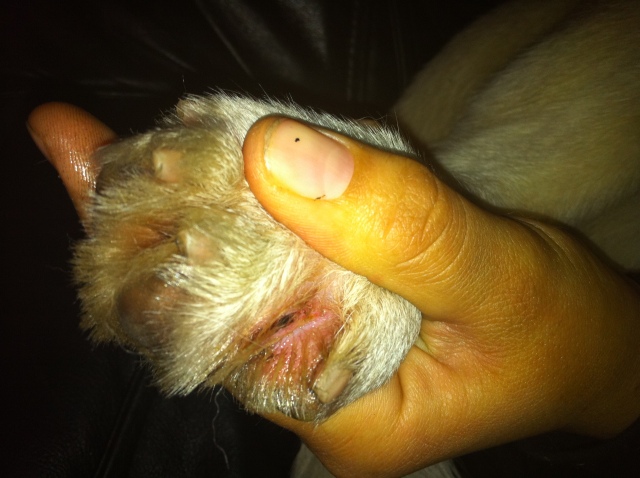 toe web injury
Question
foxy toe
I noticed a cut on the web of one of
toe web injury
Question
foxy toe
I noticed a cut on the web of one of
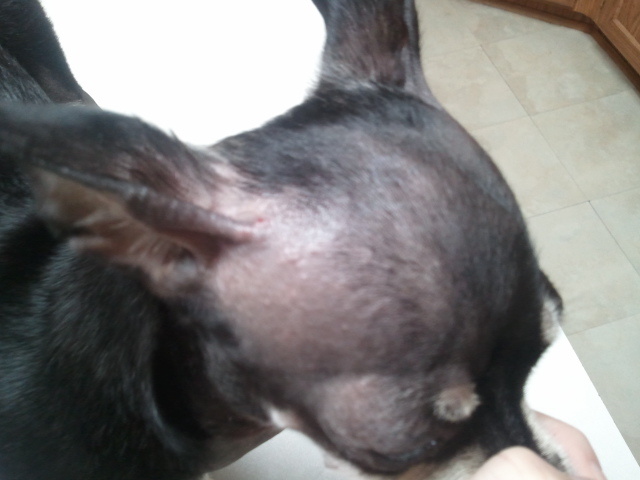 is it normal or is it mange?
Question
nemos skin
My 7 month old Chihuahua puppy, Nem
is it normal or is it mange?
Question
nemos skin
My 7 month old Chihuahua puppy, Nem
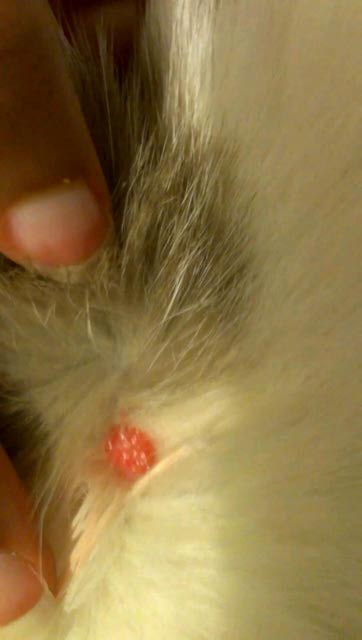 Red sore on my cat
Question
Cat Sore
Hi. I recently noticed a
Red sore on my cat
Question
Cat Sore
Hi. I recently noticed a
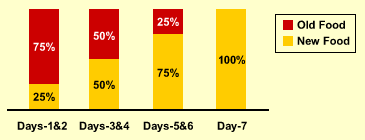 My cat is acting wierd
QuestionQUESTION: Hi my cat is acting weird, i know tha
My cat is acting wierd
QuestionQUESTION: Hi my cat is acting weird, i know tha
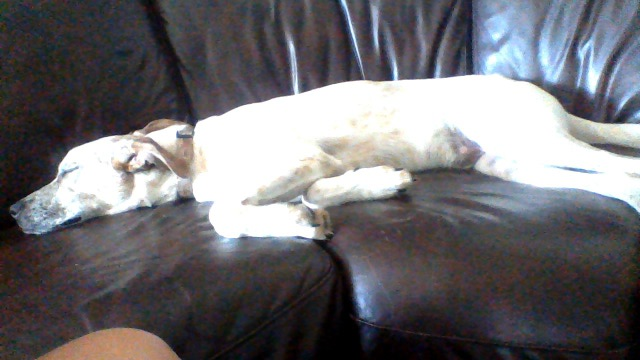 dog breathing heavily through nose
Question
Camo Camo
Hello, I have a male Am
dog breathing heavily through nose
Question
Camo Camo
Hello, I have a male Am